SensUs offers glance into the future of biosensors
Team T.E.S.T. can declare itself the winner of international student competition SensUs. The team developed the best biosensor for measuring the concentration of adalimumab, a medicine against rheumatism. Participants from fourteen corners of the world met last week, and the student teams presented their biosensors to each other and to medical professionals last Friday.
Biosensors can help improve the quality of life - this was the message of the opening speech during the finals of SensUs. For instance, when a medicine user can measure the concentration of a medicine at home with one drop of blood, it becomes possible to adjust the dose for optimal effect and a minimum of side effects. This year, fourteen student teams focus their attention on monitoring adalimumab, a medicine against rheumatism. In doing so, they use different methods for detecting the substance.
A large number of teams use a method with gold nanoparticles. The culprits which cause rheumatism, molecules of the TNF-alpha protein, bind to these nanoparticles. The team from Scotland works with heat that changes these proteins, making them detectable, and Team T.E.S.T - an acronym of TU Eindhoven Sensing Team - works with bioluminescence, i.e. light.
Bioluminescence
“We designed a protein that binds to the medicine adalimumab. In order to receive a light signal, another protein complex is necessary as well. We managed to find that existing protein, and these three together supply us with a blue light signal whose intensity depends on the medicine concentration,” says Blijke Wessels (Biomedical Engineering student) as she starts her explanation. Her team members are busy conducting the tests that are a part of this competition. Each team has to determine the concentration of adalimumab in 24 samples as accurately as possible. The results are projected live on a screen in Atlas. Each test takes about five minutes.
Besides an award for this analytical performance, the jury takes into account creativity (also Team T.E.S.T), and also awards the team that is most likely to be commercially successful (Synosense from KU Leuven). The fourth award is an audience prize, which goes to the German team Aixsens. They certainly choose an original name, their biosensor is called YOMO: You Only Measure Once.
Visitor and Psychology & Technology student Mijntje van der Lande appreciates the fact that the students invest part of their student days in SensUs. “They spend a year devoting themselves to the wellbeing of people who experience difficulties, and they show their social commitment.”
Arthritis
One of those people whose wellbeing could be improved is PhD student Wendy Olsder. She first experienced symptoms of arthritis when she was fourteen years old, but the diagnosis was made much later because the condition is uncommon among young people. She now conducts doctoral research at TU/e but is unable to sit behind a desk for fourteen hours a week without using medicines. “I experience pain in my hip and my elbows and take an adalimumab injection twice a week for that. I often have to travel to hospitals on the other side of the country for check-ups,” she says in a video message. “I can’t look into the future, no one can, but a biosensor would help me a lot.”
The biosensor developed by team T.E.S.T. is still a prototype, and Wessels doesn’t expect it to be available on the market next year. “But there certainly is a high level of interest in the chemical process and in the device, the biosensor.” The cartridge that is now used to determine the concentration of medicine shouldn’t have to cost more than fifty cents, according to team member Chris Vu. “In the hospital, a test costs fifty euros,” he says.
Quality
The initiator of this competition, the purpose of which is to accelerate the development of biosensors, is professor Menno Prins. He can’t say with any certainty whether this fourth edition of SensUs has a higher attendance rate than previous editions. “We organized those in the Auditorium, and it’s difficult to compare that location to Atlas. But it’s not about the number of participants and visitors, it’s about quality. I’m in contact with each of the fourteen universities represented by the teams and I invite them personally. We also offer refresher courses to doctors and high school teachers. It’s important to keep them up to date on the latest developments.”
Over 200,000 people in the Netherlands suffer from rheumatism and experience joint pain caused by inflammation daily. Finding the right kind of medicine and the right dose is a major challenge, according to patient organization and SensUs partner Reuma Nederland.


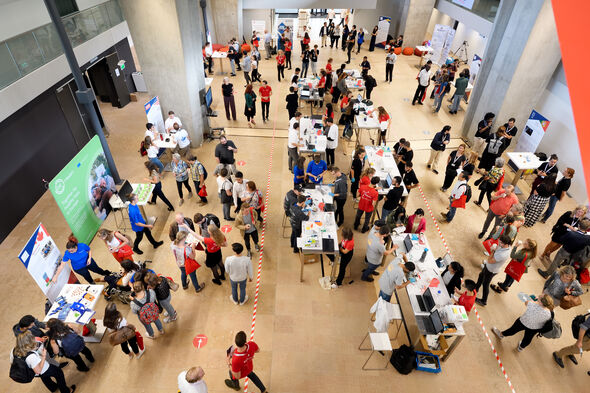
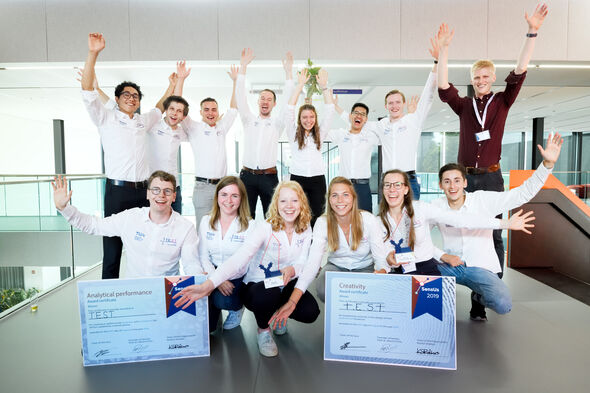
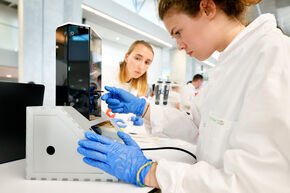
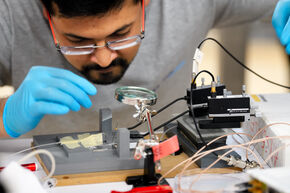
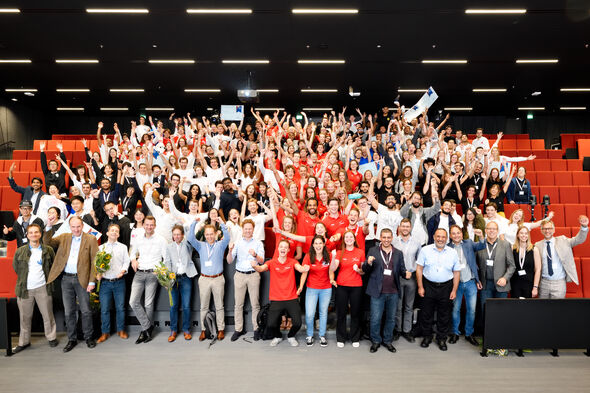
Discussion